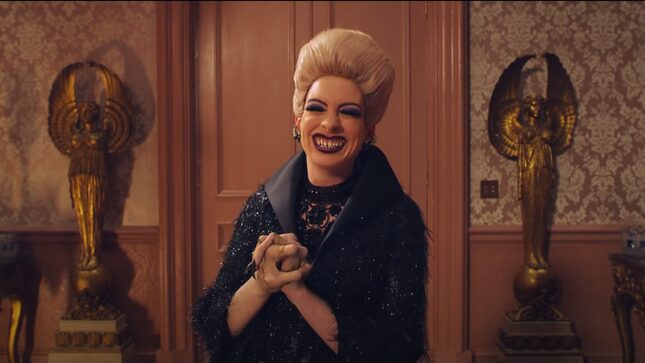'The Witches' Adaptation Faces Backlash For Giving Its Villain A Physical Disability
Entertainment

Warner Bros. has apologized after receiving criticism over their depiction of Anne Hathaway’s Grand Witch character in their new adaptation of Roald Dahl’s book The Witches. In the movie, Hathaway’s character is missing fingers, making it appear as though she has the limb difference Ectrodactyly (commonly known as split hand). This falls into a harmful pattern of giving villainous characters physical disabilities—perpetuating the oppressive idea that people with disabilities are scary or somehow less moral than people without disabilities.
Paralympic athlete Amy Marren was one of the public figures who expressed her disappointment with the Warner Bros. choice.
“It’s upsetting to something that makes a person different being represented as something scary,” she said.
“Yes, I am fully aware that this is a film, and these are Witches. But Witches are essentially monsters,” she continued. “My fear is that children will watch this film, unaware that it massively exaggerates the Roald Dahl original and that limbs differences begin to be feared.”
The vice president of communications at RespectAbility, an organization that advocates for people with disabilities, also called out the film’s decision to associate disability with evil characters—in this case, even choosing to add a limb difference that was not a part of Dahl’s original story.
“Unfortunately, this representation in ‘The Witches’ teaches kids that limb differences are hideous or something to be afraid of. What type of message does this send to children with limb differences?”
According to a spokesperson for Warner Bros., the studio was “deeply saddened” that their depiction of the characters in The Witches might have upset people with disabilities.
“In adapting the original story, we worked with designers and artists to come up with a new interpretation of the cat-like claws that are described in the book,” the statement reads. “It was never the intention for viewers to feel that the fantastical, non-human creatures were meant to represent them.”
This is basically the business equivalent of saying “I’m sorry your feelings got hurt,” while taking no responsibility for the actual harm done by their choices.